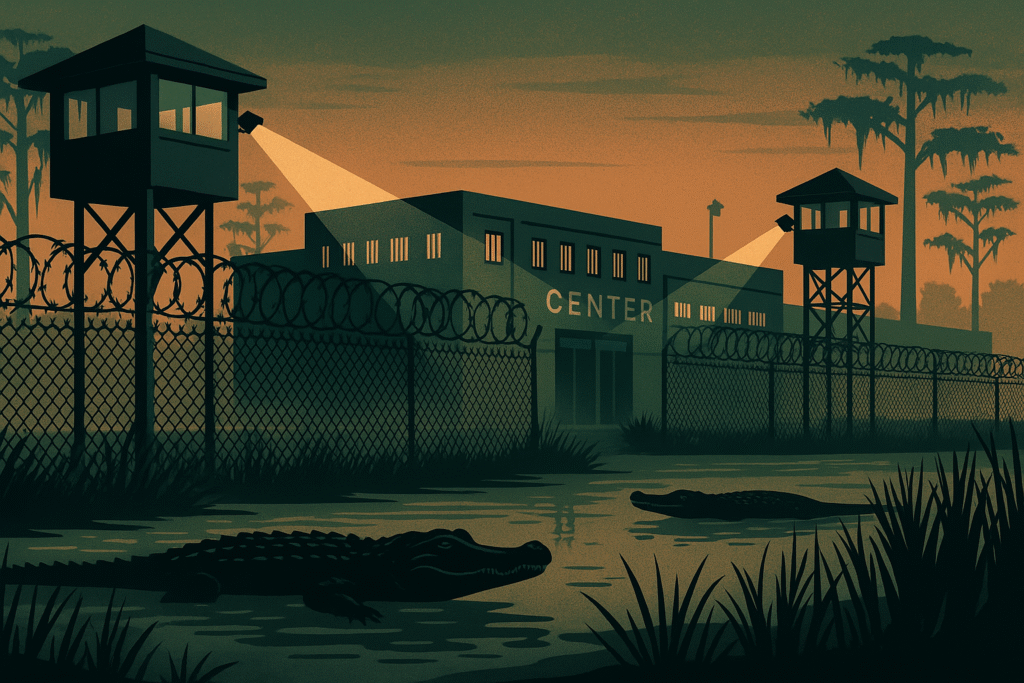Florida has officially launched operations at a newly constructed migrant detention facility located deep in the state’s Everglades region. Nicknamed “Alligator Alcatraz” by state officials, the center is designed to hold undocumented immigrants with criminal records and marks a major escalation in Florida’s immigration enforcement efforts.
Attorney General James Othmeier announced the facility’s activation on the social media platform X (formerly Twitter), stating that it would begin receiving hundreds of undocumented migrants with criminal histories starting this week. Although specific details about the detainees’ origins or arrival times were not disclosed, officials confirmed that they would be transported to the center by bus.
The facility is built on the site of an airport used for training purposes and, once fully operational, is expected to accommodate up to 3,000 individuals. Florida Governor Ron DeSantis emphasized the scale and speed of the project, noting that construction was completed in just eight days and spans over 16 kilometers in the heart of the Everglades.
Security features at the center include more than 200 surveillance cameras, approximately 8,500 meters of razor wire, and a force of 400 security personnel. The site will receive migrants detained under the federal 287(g) program — a partnership between local law enforcement and U.S. Immigration and Customs Enforcement (ICE) that permits officers to interrogate and hold individuals suspected of violating immigration laws.
A former Trump administration official confirmed that the program would be a key mechanism for funneling detainees into the new center. The facility represents a broader effort by state-level Republican leadership to exert greater control over immigration enforcement, especially in states like Florida that have become central to national migration debates.
The opening of “Alligator Alcatraz” has drawn both praise and criticism. Supporters argue that it strengthens border security and addresses public safety concerns related to undocumented migrants with criminal records. Opponents, however, have raised alarms about potential human rights issues, the rapid pace of construction, and the lack of transparency and independent oversight.
As the facility begins operations, it is expected to remain a flashpoint in the broader national conversation around immigration policy, enforcement, and civil liberties.



